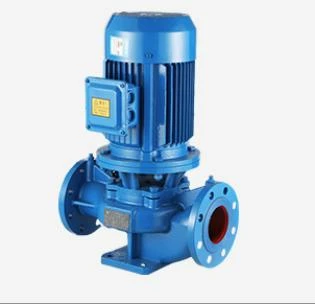Czech
- Afrikaans
- Albanian
- Amharic
- Arabic
- Armenian
- Azerbaijani
- Basque
- Belarusian
- Bengali
- Bosnian
- Bulgarian
- Catalan
- Cebuano
- Corsican
- Croatian
- Czech
- Danish
- Dutch
- English
- Esperanto
- Estonian
- Finnish
- French
- Frisian
- Galician
- Georgian
- German
- Greek
- Gujarati
- Haitian Creole
- hausa
- hawaiian
- Hebrew
- Hindi
- Miao
- Hungarian
- Icelandic
- igbo
- Indonesian
- irish
- Italian
- Japanese
- Javanese
- Kannada
- kazakh
- Khmer
- Rwandese
- Korean
- Kurdish
- Kyrgyz
- Lao
- Latin
- Latvian
- Lithuanian
- Luxembourgish
- Macedonian
- Malgashi
- Malay
- Malayalam
- Maltese
- Maori
- Marathi
- Mongolian
- Myanmar
- Nepali
- Norwegian
- Norwegian
- Occitan
- Pashto
- Persian
- Polish
- Portuguese
- Punjabi
- Romanian
- Russian
- Samoan
- Scottish Gaelic
- Serbian
- Sesotho
- Shona
- Sindhi
- Sinhala
- Slovak
- Slovenian
- Somali
- Spanish
- Sundanese
- Swahili
- Swedish
- Tagalog
- Tajik
- Tamil
- Tatar
- Telugu
- Thai
- Turkish
- Turkmen
- Ukrainian
- Urdu
- Uighur
- Uzbek
- Vietnamese
- Welsh
- Bantu
- Yiddish
- Yoruba
- Zulu
Telephone: +86 13120555503
Email: frank@cypump.com
Pro . 15, 2024 19:38 Back to list
Efficient Non-Clogging Sewage Pumps for Reliable Wastewater Management and Drainage Solutions
Understanding Non-Clog Sewage Pumps A Vital Component in Wastewater Management
Non-clog sewage pumps play a crucial role in modern wastewater management systems. Designed to handle the tough conditions associated with sewage and wastewater, these pumps are engineered to prevent clogging, making them essential for homes, businesses, and municipal facilities. Understanding the functionality, advantages, and applications of non-clog sewage pumps can help property owners and managers choose the right solution for their sewage disposal needs.
What is a Non-Clog Sewage Pump?
A non-clog sewage pump is specifically designed to transport wastewater containing solid particles without the risk of clogging. Unlike standard pumps that may struggle with debris, non-clog pumps are equipped with larger impellers and advanced design features that facilitate smooth flow. These pumps are typically submersible, meaning they operate underwater, and can effectively handle various waste types, including sewage, sludge, and even some industrial effluent.
The primary components that contribute to the non-clog feature include the volute design and the impeller configuration. The volute is designed to ensure efficient fluid flow, while the impeller is often vortex or channel-type, allowing solid particles to pass through without obstruction. This design ensures that the pumps maintain their performance and reliability in rapidly changing conditions.
Advantages of Non-Clog Sewage Pumps
One of the most significant benefits of non-clog sewage pumps is their reduced maintenance frequency. Because they are designed to handle solids and heavy debris, property owners can avoid the time-consuming and costly upkeep associated with clogged pumps. Additionally, non-clog pumps are less prone to breakdowns, resulting in improved operational efficiency.
Another advantage is the versatility of these pumps. Non-clog sewage pumps can be used in various applications, from residential systems to large industrial facilities. They are ideal for drainage systems, lift stations, and wastewater treatment plants, making them a popular choice across many sectors, including municipal, commercial, and agricultural.
non clog sewage pump

Furthermore, non-clog pumps contribute to environmental protection. By efficiently managing wastewater, they reduce the risk of overflows and backups, which can lead to harmful environmental contamination. With ongoing concerns about sanitation and public health, the importance of reliable sewage management cannot be overstated.
Applications of Non-Clog Sewage Pumps
Non-clog sewage pumps are prevalent in numerous applications. In residential settings, they are commonly found in basement sump installations, where they help prevent flooding from heavy rains or plumbing failures. For commercial facilities, they are vital in restaurants and hotels, where large amounts of wastewater are generated daily.
In municipal sewage systems, non-clog pumps are essential for transporting wastewater from collection points to treatment facilities. Their ability to handle varying waste loads and compositions ensures that municipalities can efficiently manage public health and sanitation.
In industrial contexts, non-clog pumps support processes that involve the disposal of wastewater mixed with solids, such as paper mills or food processing plants. These industries produce significant volumes of waste, and the ability to maintain operational efficiency in waste management is paramount.
Conclusion
Investing in a non-clog sewage pump is essential for efficient waste management. With their robust design and dependable performance, these pumps ensure that wastewater is handled safely and effectively across various applications. Whether for residential, commercial, or industrial use, understanding the advantages of non-clog sewage pumps can empower property owners and managers to make informed decisions that protect their infrastructure and the environment. In a world where sanitation and cleanliness are more critical than ever, reliable sewage pumps stand out as indispensable components of public health infrastructure.
-
ISG Series Vertical Pipeline Pump - Chi Yuan Pumps Co., LTD.|High Efficiency, Low Noise, Durable
NewsAug.02,2025
-
ISG Series Vertical Pipeline Pump - Chi Yuan Pumps | High Efficiency, Low Noise
NewsAug.02,2025
-
ISG Series Vertical Pipeline Pump- Chi Yuan Pumps Co., LTD.|High Efficiency&Compact Design
NewsAug.02,2025
-
Heavy-Duty Mining Sludge Pumps - Wear-Resistant Slurry Handling
NewsAug.02,2025
-
Horizontal Split Case Pump with GPT-4 Turbo | High Efficiency
NewsAug.01,2025
-
ISG Series Pipeline Pump - Chi Yuan Pumps | High Efficiency, Durable Design
NewsAug.01,2025










